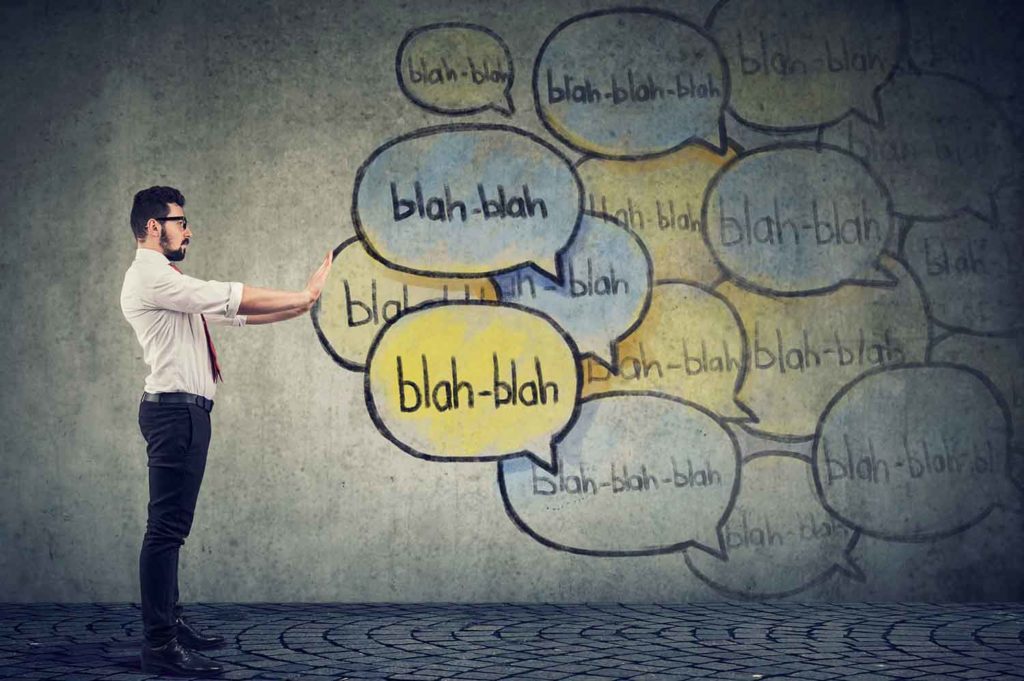Practice
Teaching: On the Benefits of Critical Ignoring

Aimed at integrating cutting-edge psychological science into the classroom, Teaching Current Directions in Psychological Science offers advice and how-to guidance about teaching a particular area of research or topic in psychological science that has been the focus of an article in the APS journal Current Directions in Psychological Science.
Also see Teaching: The Unexpected Pleasure of Doing Good.
People study psychology to understand themselves, others, and their global community. To foster such understanding, psychological scientists teach critical thinking. Using the scientific method, students learn how to approach competing ideas with an analytical mindset—leading them to rely on evidence rather than anecdote or intuition.
According to Anastasia Kozyreva, Sam Wineburg, and APS Fellows Stephan Lewandowsky and Ralph Hertwig (2022), psychological scientists should also teach critical ignoring, defined as “choosing what to ignore and where to invest one’s limited attentional capacities.” The proliferation of digital information has given people greater access to information. Yet there are few checks and balances to separate false and misleading information from the truth. Thus, people must become smart ignorers of information (Hertwig & Engel, 2016).
To engage in critical ignoring, Kozyreva and colleagues encourage people to use three approaches:
- Self-nudging: Redesign your environment to limit the temptation to consume unvetted information (Reijula & Hertwig, 2022). For example, people can use apps or web browser extensions that restrict their use of social media.
- Lateral reading: Ignore people or organizations who refuse to let you cross-check their claims with independent verification from third parties, especially those that may be inclined to disagree with them. Start by verifying information from its original source. Next, seek out independent verification from other sources. Professional fact-checkers commonly use lateral reading (Wineburg & McGrew, 2019). Don’t invest your limited attentional resources listening to people or organizations that refuse to have their claims verified.
- “Do Not Feed the Trolls”: Avoid trolls—people who seek to deceive or harm others online. Trolls score highly on sadism (example item: “I enjoy hurting people”), psychopathy (“Payback needs to be quick and nasty”), and Machiavellianism (“It’s not wise to tell your secrets”). Trolls also find annoying and upsetting others reinforcing (Craker & March, 2016). Any time you catch a whiff of someone engaging in troll-like behavior, block or ignore them.
Ask students to select two topics from the following list that they feel comfortable thinking about:
- Student debt crisis
- Cancel culture
- Critical race theory
- Gun control
- Mandatory Covid-19 vaccines
- Abortion
- White supremacy
- Animal rights
- Climate change
- Immigration reform
Tell students about the importance of critical ignoring, which means ignoring some information and investing their limited attentional resources elsewhere. Next, ask students to consider how they can use the three essential strategies of ignoring to understand better the topics they chose:
- Self-nudging: How can students redesign their environment to limit the temptation to consume unvetted information related to their chosen topics? How could they limit the time they spend on certain websites? Should they avoid some websites? Why? What other actions can they take to make these environmental changes?
- Lateral reading: Ask students to cross-check information from a source (author, organization) and determine whether it conforms to information elsewhere (e.g., Wikipedia, Our World in Data). Students can start by verifying information from its source and then seek independent verification from other sources. Encourage students to try to verify information from independent sources that are either neutral or opposed to a particular position. How does lateral reading help students pay attention to the most relevant information? How might their learning experience differ if they decided to ignore people or organizations that refused to have their claims confirmed by independent sources?
- “Do Not Feed the Trolls”: How might students avoid online trolls related to their topics? Have they blocked or ignored trolls in the past? Why might ignoring trolls be the safest and most effective strategy?
Psychological scientists need to teach both critical thinking and critical ignoring. Faced with a deluge of digital information, people need guidance on deciding what information to ignore and where to invest their limited attentional resources. By self-nudging, lateral reading, and starving online trolls, people can better understand themselves, their fellows, and their global community.
Feedback on this article? Email [email protected] or login to comment. Interested in writing for us? Read our contributor guidelines.
References
Craker, N., & March, E. (2016). The dark side of Facebook®: The Dark Tetrad, negative social potency, and trolling behaviors. Personality and Individual Differences, 102, 79–84. https://doi.org/10.1016/j.paid.2016.06.043
Hertwig, R., & Engel, C. (2016). Homo ignorans: Deliberately choosing not to know. Perspectives on Psychological Science, 11(3), 359–372. https://doi.org/10.1177/1745691616635594
Reijula, S., & Hertwig, R. (2022). Self-nudging and the citizen choice architect. Behavioural Public Policy, 6(1), 119–149. https://doi.org/10.1017/bpp.2020.5
Wineburg, S., & McGrew, S. (2019). Lateral reading and the nature of expertise: Reading less and learning more when evaluating digital information. Teachers College Record, 121(11), 1–40. https://www.tcrecord.org/Content.asp?ContentId=22806





APS regularly opens certain online articles for discussion on our website. Effective February 2021, you must be a logged-in APS member to post comments. By posting a comment, you agree to our Community Guidelines and the display of your profile information, including your name and affiliation. Any opinions, findings, conclusions, or recommendations present in article comments are those of the writers and do not necessarily reflect the views of APS or the article’s author. For more information, please see our Community Guidelines.
Please login with your APS account to comment.